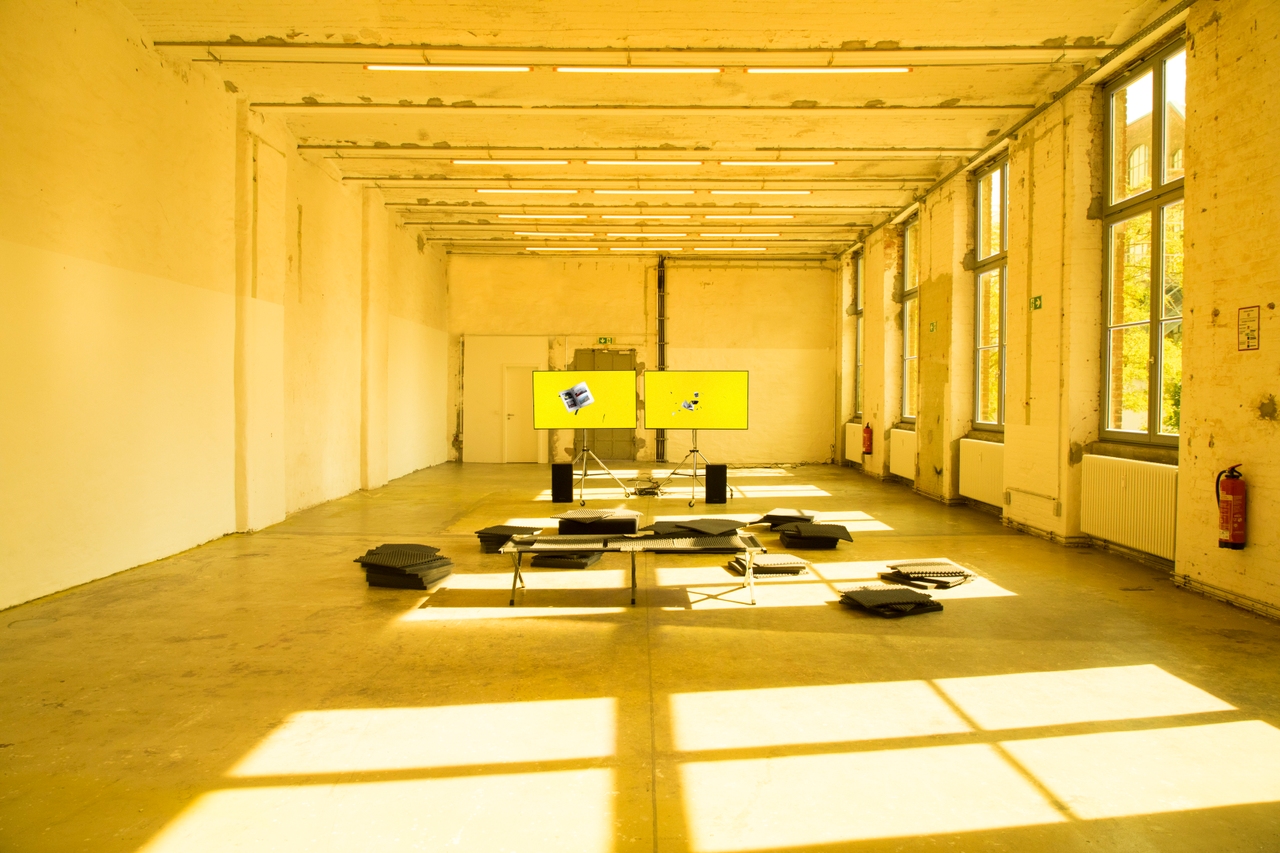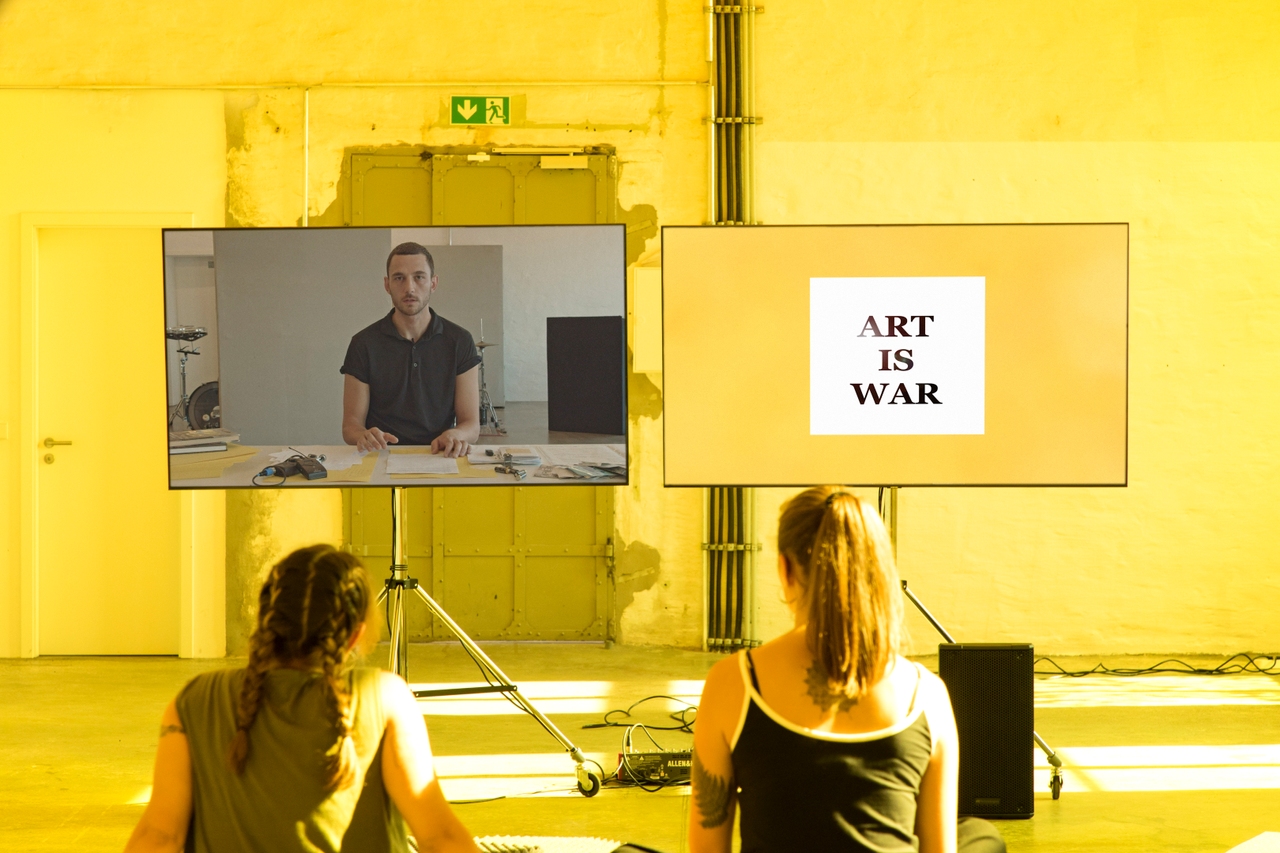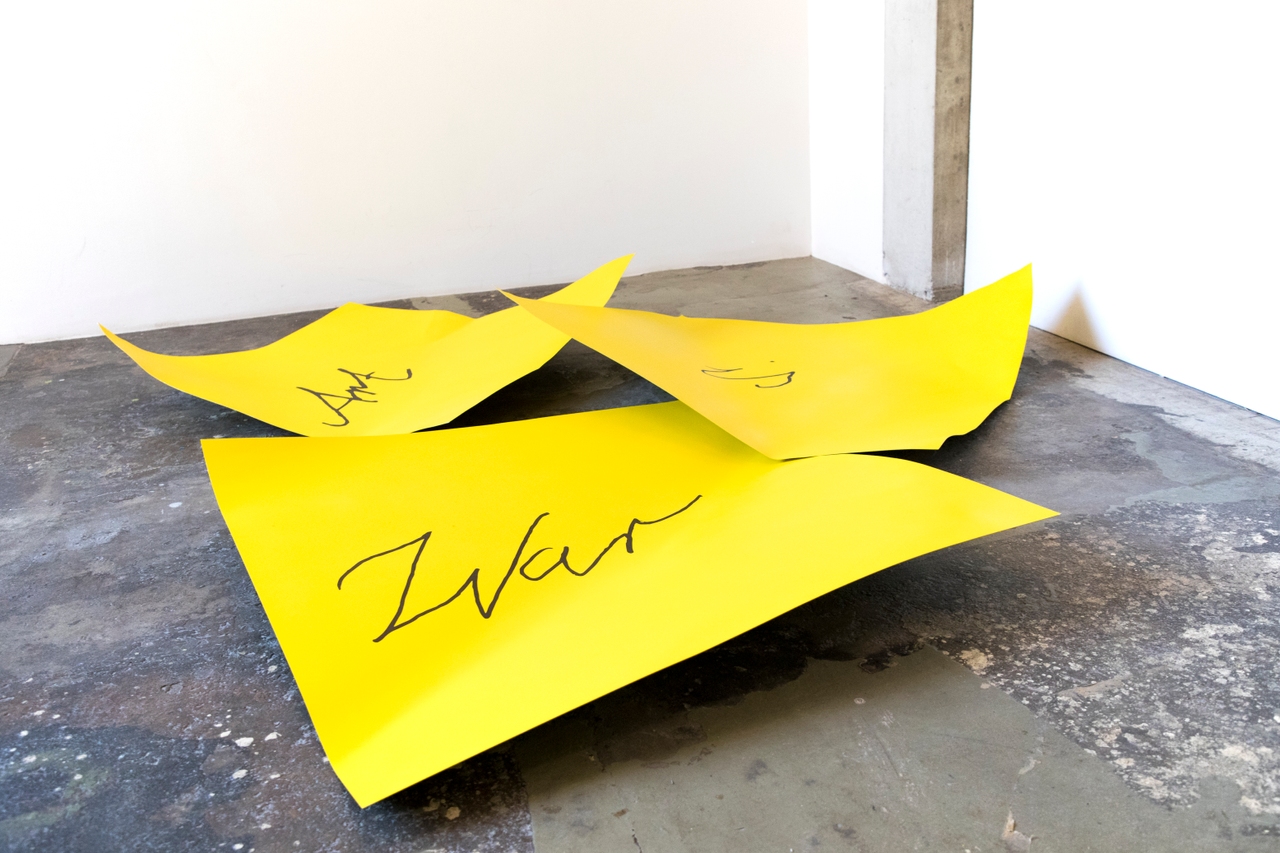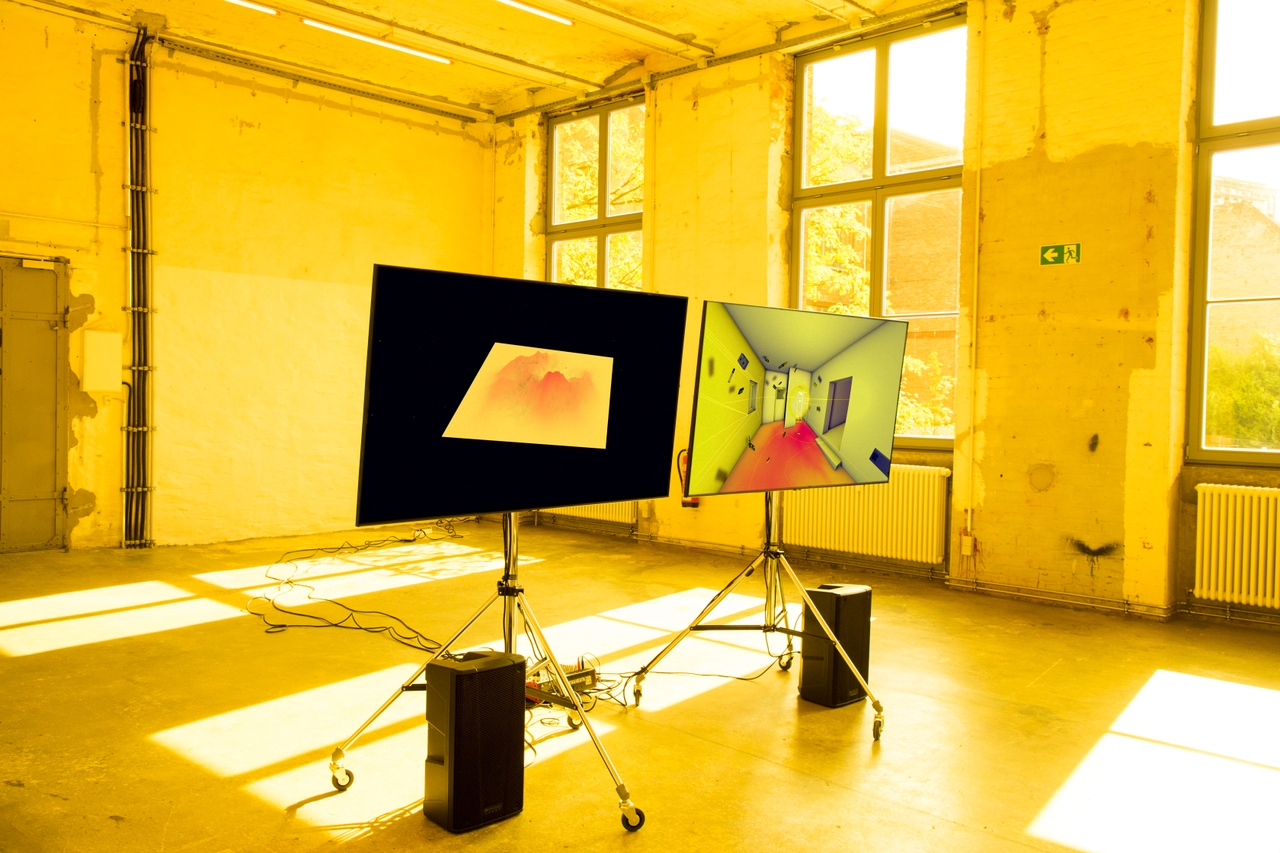All But War Is Simulation
Miloš Trakilović’s practice—at once poetic and theoretical—moves fluidly between subject matter. Trakilović’s work often takes the form of a lecture-performance, wherein he directly addresses the audience, revealing connections between seemingly disparate themes and presenting his recent investigations not as fact, but as speculation. Combining critical theory, popular culture, and personal experiences, Trakilović creates highly effective sequences that portray the mutability of meaning. Within overarching themes of migration, militarization, and digital technology, Trakilović is interested in complexity: seeking neither anthropological distance nor binary constructs of innocence and guilt. By placing himself directly within his work, Trakilović is able to articulate this relationship and depart from illusions of neutrality.
Trained in Experimental Film and New Media Art, and with a personal experience of war and migration, Trakilović’s work considers the ways in which marginal categories of experience—such as the loss of nationhood—are often the opposite. What might appear peripheral is often symbolically central, and a place to observe power in its most undiluted form.
In All but War Is Simulation, Trakilović continues his investigation into the impact of mass media and digital technology on political subjectivity and national constructs. A 2-channel video installation blends historical record with speculation and theory, taking a document from the war in Bosnia as its starting point. A soon-to-be refugee’s Post-It note details a list of possessions to take before the family’s eviction. All the items are linked to preserving memory in some way—highlighting the impulse to hold onto a reality that is already irrevocably changed, as well as the necessity of survival in the face of everyday war, when life becomes reducible to a handful of items.
The title of the work and the exhibition refers to a firm that builds simulations of war for military training. Their slogan, “All but War Is Simulation” ironically recognizes their impotence: nothing can prepare you for war. Flooding the room with yellow light, Trakilović foregrounds the initial record—the Post-It note—within the exhibition space, suggesting that conflict is not simply a distinct period in time, but a material configuration in which we are ceaselessly enmeshed.







